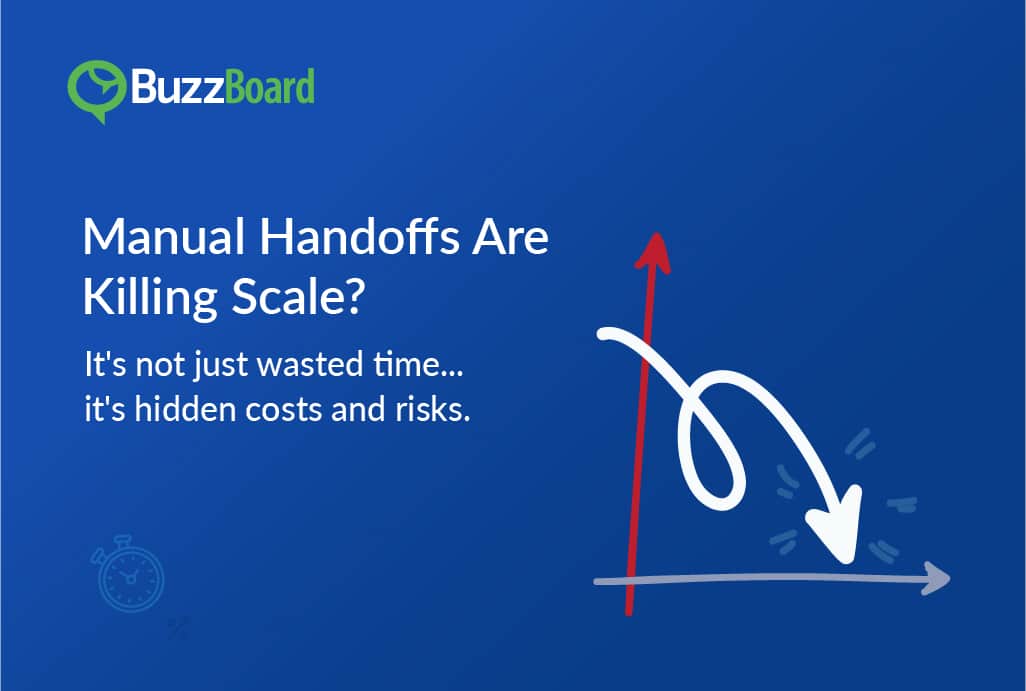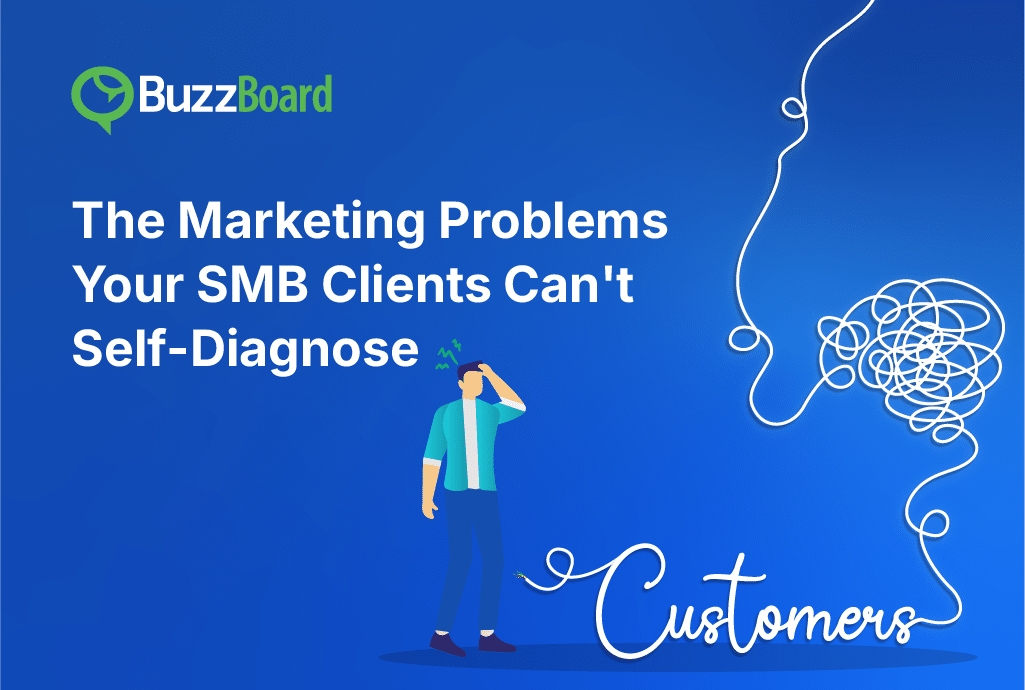Small business marketing isn’t for the faint of heart. It’s more like leading a high-stakes project where the client (aka the business) expects immediate results—without realizing they’ve been relying on outdated tactics and questionable online advice.
Often eager to solve their challenges on their own, small businesses end up self-diagnosing on YouTube, relying on just any influencer suggestions. And in most cases, this guesswork hurts growth while wasting time, resources, and marketing dollars.
If truth be told, most small business marketing challenges aren’t surface-level. The real issues often lurk beneath the symptoms, waiting to be uncovered with a sharp eye and a strategic mind.
But here’s the kicker: diagnosing these issues isn’t just about identifying what’s broken. It’s about recognizing patterns, analyzing behaviors, and prescribing solutions that not only stop the bleeding but also promote long-term growth.
For experienced marketers and SMB-focused agencies like you, the thrill is in uncovering the real issues and prescribing solutions that actually drive results.
Today we’ll explore the most common small business marketing problems, decode their root causes, and arm you with actionable strategies to turn underperforming campaigns into success stories—so you can walk into your next client meeting with the confidence of a seasoned marketing maestro.
What are the most common digital marketing missteps that can harm small businesses?
What are the most common small business marketing issues? According to experts, common mistakes include a lack of clear goals, poor website design, inadequate social media presence, ineffective email marketing, and the list goes on. We know that running digital marketing for small businesses often feels like being a doctor in an overbooked clinic—different symptoms, multiple diagnoses, and a lot of “Google MD” misinformation.
- A common misconception among small and medium-sized businesses is replicating successful strategies designed for large corporations and anticipating similar results for mid-sized, local businesses. The problem here is that these strategies may not scale effectively, leading to overspending and subpar performance.
- Due to their lack of marketing expertise, small businesses or SMBs often try to cast a wide net, thinking “Everyone is my customer.” But broad targeting usually means attracting an audience that’s mildly interested at best and completely disinterested at worst.
- These businesses frequently grapple with budget constraints. They may desire a holistic digital marketing strategy but could be limited by inadequate financial resources.
- That said, another typical mistake is the inadequate utilization or mismanagement of paid advertising. Effectively managed paid search, display ads, or other forms of paid promotion can significantly enhance the visibility of mid-sized businesses. However, these are often deployed without a streamlined strategy or proper monitoring, leading to lavish spending with little return on investment.
- With multiple tasks competing for their attention, small business owners often struggle to find the time to consistently monitor and assess their marketing initiatives. This can lead to a lack of visibility into the performance of their marketing campaigns, making it difficult to identify areas for improvement and make data-driven decisions.
All right, these are the most common and major marketing problems for small businesses… but how do you pinpoint them in real life?
Diagnosing small business marketing issues: A pro’s real-world approach
As experienced digital marketers, you know that every small business is unique, which means cookie-cutter solutions rarely work. Instead, we approach each client like an investigator piecing together a puzzle, looking at everything from audience behaviors to conversion patterns to identify what’s really going on.
Here’s how you do it in real life:
1. Start with a deep-dive discovery session
Goal: Understand the business’s goals, audience, and perceived challenges.
What You Ask:
- Who is your ideal customer, and how do you currently reach them?
- What’s your primary business goal—brand awareness, lead generation, or conversions?
- Which marketing channels are you using, and how are they performing?
Why It Works: This conversation helps uncover gaps between perception and reality. Business owners often think they know their audience, but deeper questioning reveals misaligned targeting or untapped segments.
2. Audit existing marketing channels
Goal: Identify performance gaps and assess channel effectiveness.
What You Analyze:
- Website traffic and conversion data (Google Analytics, heatmaps, etc.)
- Email open rates, click-through rates, and engagement patterns
- Social media engagement, reach, and audience growth
- SEO performance—keyword rankings, backlinks, and local visibility
Why It Works: A data-driven audit highlights where the business is leaking leads or underutilizing high-ROI channels. It also helps you identify whether traffic quality, content relevance, or conversion flow is the primary issue.
3. Evaluate brand messaging and positioning
Goal: Ensure brand consistency and clarity across all platforms.
What You Review:
- Website copy, blog content, and ad messaging
- Social media tone and brand voice
- Value propositions and key differentiators
Why It Works: Inconsistent or unclear messaging creates confusion and weakens trust. You identify where messaging is misaligned and recommend adjustments to create a cohesive brand narrative.
4. Analyze customer journeys and conversion funnels
Goal: Pinpoint where leads are dropping off and why.
What You Map Out:
- Entry points—how users find the business
- Path to conversion—landing pages, forms, and CTAs
- Drop-off points—where leads disengage or abandon the process
Why It Works: By understanding where and why leads disengage, you can fix friction points and streamline the customer journey for higher conversions.
5. Assess competitor and industry benchmarks
Goal: See how the business stacks up against competitors.
What You Compare:
- Competitor ad strategies and keywords
- Content types and formats driving engagement
- Social media presence and audience interaction
Why It Works: This comparison highlights gaps and opportunities that the business may be missing—allowing you to craft strategies that give them a competitive edge.
6. Create a Data-Backed Diagnosis and Action Plan
Goal: Turn insights into a clear, results-driven strategy.
What You Deliver:
- A detailed diagnosis of current challenges
- Prioritized recommendations with action steps
- Measurable KPIs to track improvement
Why It Works: This approach ensures that every solution is tailored to the business’s unique challenges, driving sustainable growth instead of short-term fixes.
Role of problem-solving in diagnosing and fixing failing marketing campaigns
Effective problem-solving in marketing is a multifaceted process that goes beyond simply providing solutions. It begins with detecting problems early on before they escalate into full-blown crises—of course, they can have a significant impact on the overall performance of your marketing efforts. Every underperforming marketing campaign has underlying issues that contribute to its decline, whether it’s an ineffective digital presence, weak customer engagement, or shrinking sales.
Once you’ve detected these challenges, you can initiate the problem-solving phase. This may involve revitalizing web design, reworking content, or implementing user-friendly interfaces to improve the user experience. You may also need to explore new trends and technologies that can enhance visibility in the small business sector. For instance, leveraging social media platforms, influencer marketing, or content marketing can help increase brand awareness and drive engagement.
Problem-solving is not a one-time event but an ongoing process that requires constant learning and innovation. You navigate the trial-error cycle and view failures as stepping stones to success. It’s not just about rectifying campaigns; it’s about setting the stage for sustainable growth and future-proof strategies.
The power of analysis and AI in solving common small business marketing issues
Effective analysis involves examining a range of data points, including website traffic, conversion rates, client engagement metrics, and other key performance indicators (KPIs). By analyzing these data points, you can identify where performance measures deviate from your predictions, revealing the root causes of a marketing campaign’s insufficient performance.
This requires the use of dedicated analytical tools, such as Google Analytics, to track performances and identify areas that need attention. But here’s the catch: Google Analytics tells what is happening, not why it’s happening.
Pro Tips:
- Go for SWOT analysis for strategic insights. As SMB-focused marketing professionals, you would definitely want to put your finger on the strategy gaps, including competitive positioning, brand differentiation, etc.; it not only helps you assess the bigger picture but also you get to present to your clients deeper insights and undiscovered business needs.
- Without regular audits, small businesses risk pouring resources into strategies that aren’t aligned with their goals. A FREE digital audit tool can offer marketers a 360-degree view of a business’s digital ecosystem—analyzing your prospect’s online presence, website robustness, social credibility, advertising effectiveness, and more!
- The perks of deep analysis are plenty; it helps sharpen a marketer’s judgment that directly impacts campaign outcomes, client trust, and long-term growth. In many cases, for instance, resolving a campaign needs slight yet targeted adjustments that can prompt significant progress, such as modifying a call-to-action button, altering an email subject line, or revising the copy. When optimization is all it needs, why burden your clients unnecessarily with a renewed approach?!
- When analysis reports show that the targeting is off, there’s inconsistency in messaging and brand positioning, among other red flags, you are able to identify that your client’s business demands a complete overhaul. Indeed, with analytics, you don’t just jump to conclusions or apply generic solutions.
- Clients love real results and AI… without the hype. Because agencies need to work smarter and not always harder, AI agents are turning out to be the next-generation stars in the digital marketing space. AI or artificial intelligence, that stands for automation, deep audience insights, and hyper-personalization at scale, is empowering SMB-centric marketers to focus on strategy while ensuring that every campaign hits the mark:
- AI agents are making ad campaigns easy and effective
- They are automating and optimizing social media campaigns
- High volumes of customer feedback get auto-responded while you reveal patterns and actionable insights
- AI agents can execute high-impact email campaigns for clients
- Deliver stunning, search-optimized websites faster than ever with AI
Remember, marketing is a continuous process that requires ongoing evaluation and improvement. And it’s about uncovering the deeper issues that hinder growth and addressing them with precision. As an experienced marketer, your ability to decode patterns, refine strategies, and leverage AI for smarter decision-making gives your clients a competitive edge. By taking a tailored, data-driven approach, you move beyond surface-level fixes and lay the groundwork for sustainable success.
In a landscape where small businesses often rely on trial-and-error tactics, your expertise bridges the gap between guesswork and guaranteed results. Armed with actionable insights, you can confidently guide clients toward high-impact strategies that turn underperforming campaigns into growth engines. After all, diagnosing problems is just the beginning—the real magic lies in transforming those insights into measurable success.

